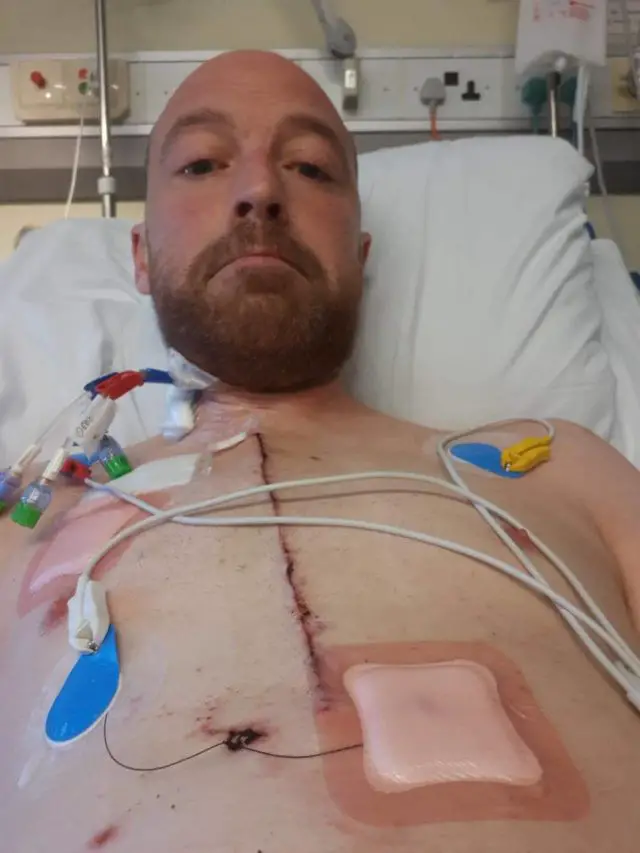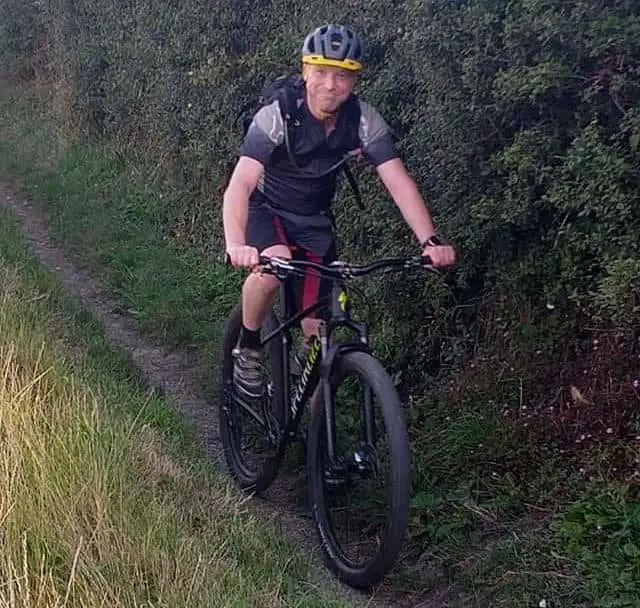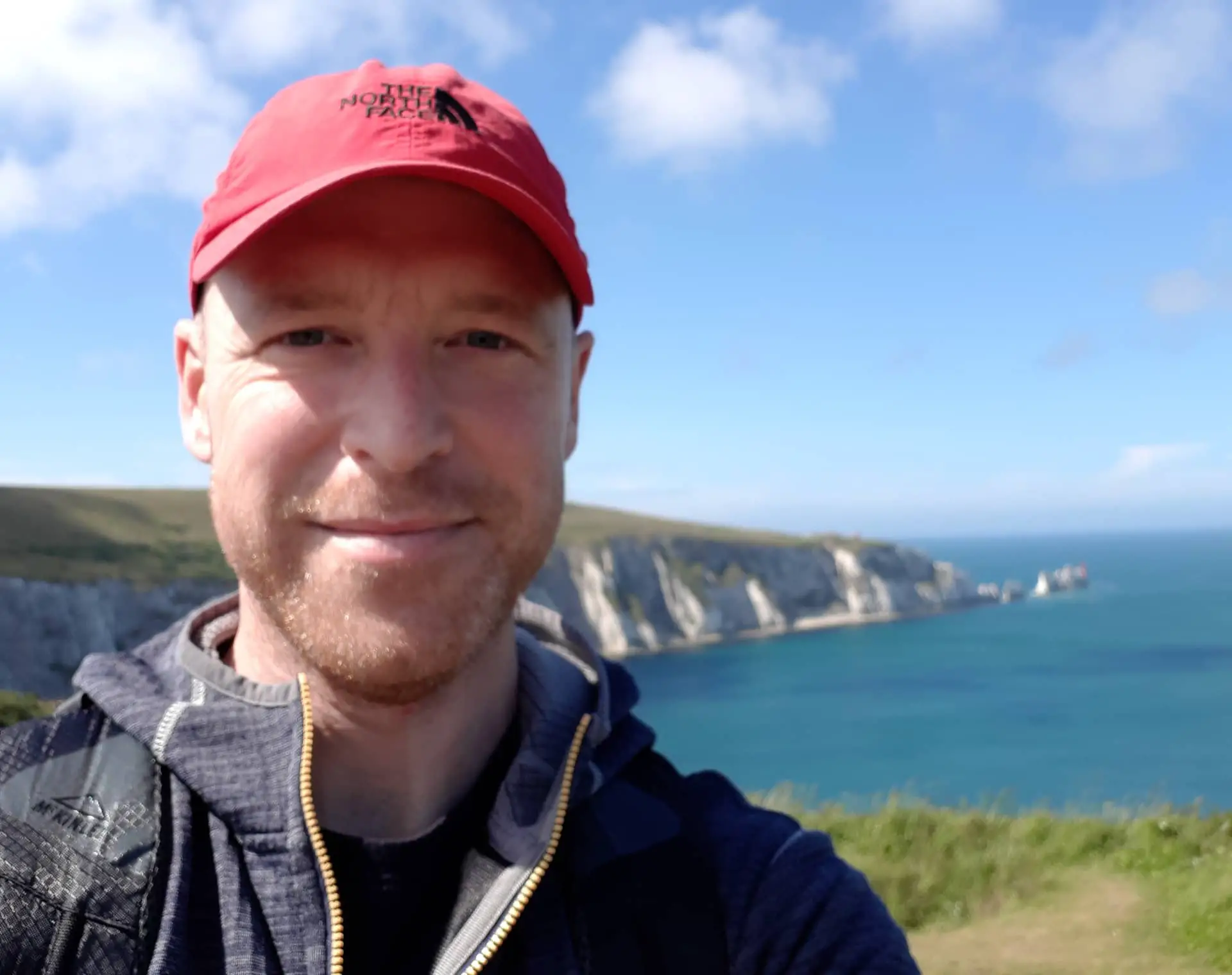Islander Nick Culshaw, who received a heart transplant, is calling on Island families and friends to sign up to the Organ Donation Register and to make sure their wishes about organ donation are known during Organ Donation Week 2020 which runs from Monday 7th to Sunday 13th September.
Nick says:
“In 2018 I was one of the lucky ones when I received the amazing gift of a donor heart. I’d been waiting on the Transplant Ward at Harefield hospital on the mainland for nine months after I was added to the urgent transplant list due to end stage heart failure.
“Waiting is both physically and mentally hard. Distanced from family and friends, you don’t know whether a donor organ will become available before your condition deteriorates so far that a transplant is not possible. Transplantation is the last line of treatment for patients in the position I found myself at 42.
“The need to receive a donor organ is, thankfully, something many families never have to face. I had a degenerative genetic cardiac disease, however, people can find themselves suddenly in need of an organ as a result of something as simple as a virus attacking the body and damaging it, it really can happen to anyone at any time.
“I was one of the fortunate patients, but many others are waiting and there is a shortage of organs meaning sadly, many aren’t as lucky as me. Sadly, in 2018/19 when I received my transplant, 400 people died while waiting for their call and a further 777 were removed due to deteriorating health. Many of these would have died shortly afterwards. On average three people die every day awaiting transplant.”
6,000 people on active waiting list
There are currently around 6,000 people in the UK on the active waiting list – including around 150 children and teenagers.
One donor can save or transform up to nine lives and 82% of the population definitely want to donate or would consider donating their organs, but only 35% of people across the UK have joined the NHS Organ Donor Register.
Opt out scheme
Organ donation in England has changed to an ‘opt out’ system.

This means that if you are not in an excluded group, and have not confirmed whether you want to be an organ donor – either by recording a decision on the NHS Organ Donor Register, or by speaking to friends and family – it will be considered that you agree to donate your organs when you die.
Culshaw: Essential you discuss your wishes with family
Nick, a member of the Island’s Organ Donation Committee, continues:
“Despite the change in the law you still have a choice about whether or not you wish to become a donor and your faith, beliefs and culture will continue to be respected.
“It is however essential that you discuss your wishes with family and friends and I am so grateful for myself and my family that my amazing donor did just that. Otherwise I would not be here to tell my story.”
Nine IW patients received life-saving or life-changing transplant
The recently published NHS Blood and Transplant (NHSBT) report on organ donation activity for the Island shows that between April 2019 and March 2020, from four consented donors Isle of Wight NHS Trust facilitated four actual solid organ donors resulting in nine patients receiving a life-saving or life-changing transplant.

The Trust referred 27 patients to NHSBT’s Organ Donation Services Team of which 17 met the referral criteria. A specialist nurse from NHSBT was present for five organ donation discussions with families of eligible donors.
Thomas: Your family’s support is needed for organ donation to go ahead
Bethan Thomas, Specialist Nurse Organ Donation says:
“The team at Isle of Wight NHS Trust is very supportive of organ donation. The NHS Organ Donor Register keeps a record of your organ donation decision. If you die in circumstances that mean donation may be a possibility a specialist nurse will discuss this with your family or close friends, but before doing so, we will check the NHS Organ Donor Register to see if you recorded a donation decision.
“Many people don’t realise that their family’s support is needed for organ donation to go ahead. If you’ve never spoken to your family about your organ donation decision, they won’t know you want to save lives. Letting your loved ones know your decision helps them to understand what is important to you at a difficult time and allows us to help facilitate your end of life choice.
“We understand that the decision not to become an organ donor in the event of your death is a personal choice. If you do not want to donate your organs then you should register your decision to refuse to donate And remember to inform your family and loved ones.”
Flowerdew: It is unusual for us to miss a potential donation opportunity
Alistair Flowerdew, Medical Director at Isle of Wight NHS Trust, adds:
“The Trust is proud of the work of the emergency department and intensive care teams and everyone else who is involved in this sensitive area.
“The close working of our services and collaboration with NHSBT means that, despite their infrequent occurrence, it is unusual for us to miss a potential donation opportunity.”
People can sign up to the Organ Donation Register at: www.organdonation.nhs.uk
News shared by Isle of Wight NHS Trust. Ed





